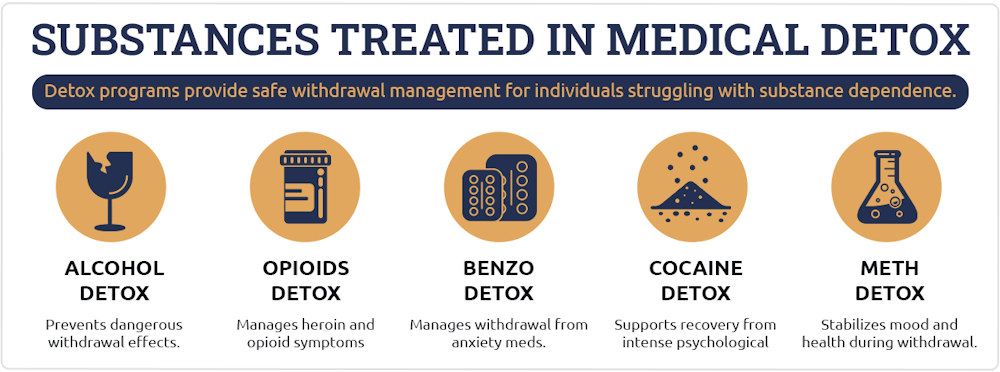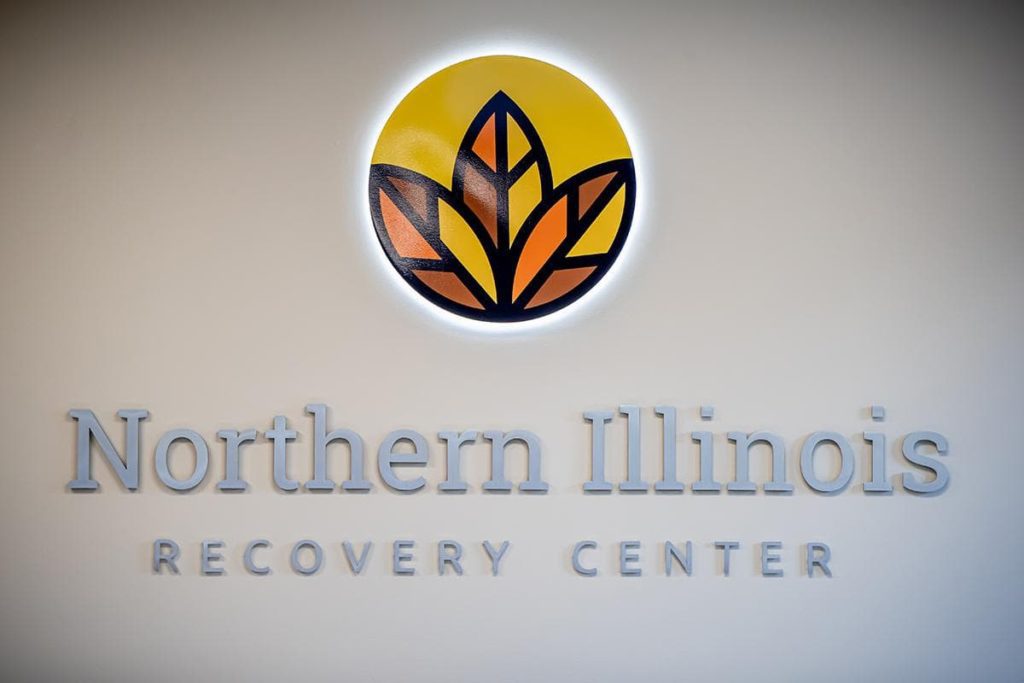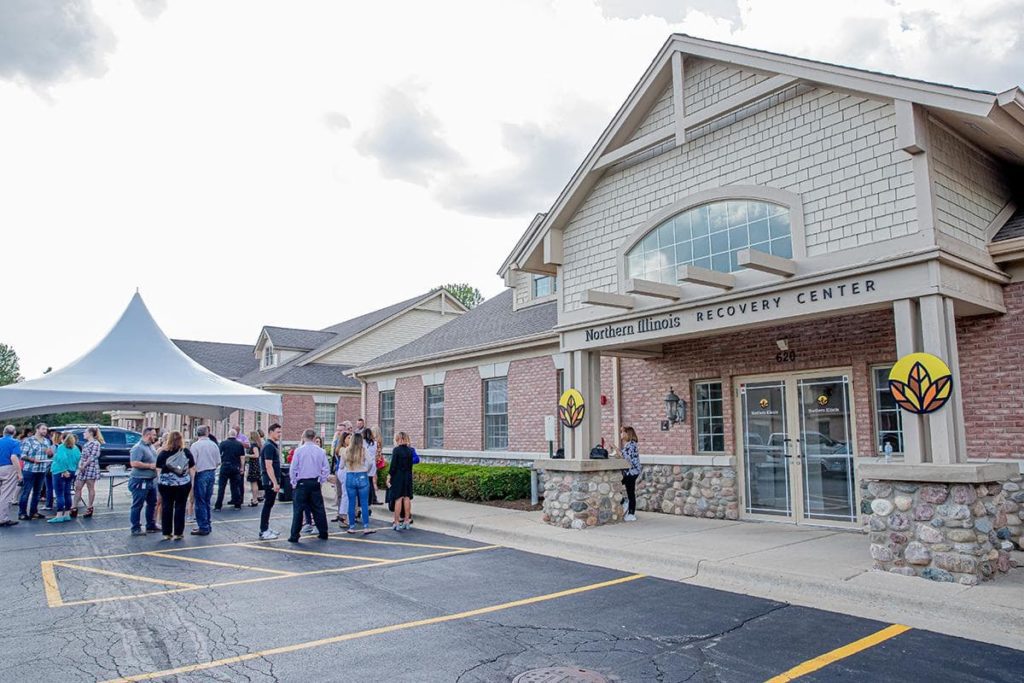At Northern Illinois Recovery Center in Crystal Lake, Illinois, we understand that taking the first step toward recovery can feel overwhelming, but it doesn’t have to be faced alone. Detox is a critical foundation in the continuum of care for addiction treatment, with studies showing that up to 80% of individuals trying to quit substance use without professional support return to use due to the challenging symptoms of withdrawal.
That’s why our compassionate medical detox center is designed to provide the safety, care, and professional guidance needed to begin recovery with a solid start. With 24/7 medical oversight and personalized support, we help ease the physical and emotional burdens of withdrawal, ensuring every individual can focus on healing with dignity and comfort. At Northern Illinois Recovery, detox isn’t just a process–it’s the gateway to a healthier, brighter future.
Detox is a critical component of treatment because it helps individuals break their physical dependence on substances, creating a clean foundation for long-term recovery. Without this key step, addressing the psychological, emotional, and behavioral aspects of addiction can be incredibly difficult.

The Purpose of Detox
Detox serves as a starting point, but not a standalone fix, for treating substance use disorders. Its primary aim is to help individuals safely manage withdrawal symptoms while removing toxins from their system. Properly managed detox provides a safe and stable environment, reducing both physical and emotional distress, which can also aid in relapse prevention during this critical phase.
Detox also offers individuals a chance to begin recovery with a clear mind and body, paving the way for comprehensive therapy and treatment. By addressing the physical effects of addiction first, individuals are better equipped to engage in the next steps of care, such as individual counseling, group therapy, and personal growth.
Common Withdrawal Symptoms Treated During Detox
- Sweating
- Nausea and vomiting
- Diarrhea
- Headaches
- Muscle aches and cramps
- Fatigue
- Shaking or tremors
- Insomnia or disrupted sleep patterns
- Loss of appetite or sudden increase in appetite
- Changes in heart rate (elevated or irregular heartbeat)
- High blood pressure
- Chills or fever
- Dilated or constricted pupils
Withdrawal symptoms can vary depending on the substance abused, but many share similar physical and psychological effects. These symptoms can range from mild to severe, and can occur across various substances:
- Anxiety or restlessness
- Irritability or mood swings
- Depression or sadness
- Intense cravings for the substance
- Difficulty concentrating or memory problems
- Hallucinations (in severe cases)
- Paranoia or heightened sensitivity
- Confusion or cognitive impairment
- Agitation or aggressive behavior
- Seizures
- Delirium tremens (DTs), which can include confusion, shaking, and hallucinations
- Suicidal thoughts or behavior
Symptoms of withdrawal can be challenging to face and, in some cases, dangerous without medical treatment and structured support. If you or someone you know is preparing to detox, seeking professional, medically supervised care is crucial for safety and comfort. It allows individuals to begin recovery with the support and tools they need for success.
Regardless of how severe your symptoms are, our detox center in Illinois will get you through with personalized treatment plans tailored to your specific needs.
Common Substances That Require Detox
- Alcohol Detox: Alcohol can lead to severe symptoms like seizures or delirium tremens (DTs). Alcohol is an addictive substance that requires detox as it is a central nervous system depressant.
- Benzo Detox: Benzodiazepines (e.g., Xanax or Valium) can cause severe symptoms like seizures or confusion if not gradually tapered off under medical supervision. Benzos are a prescription drug that is extremely addictive, whether used medically or recreationally.
- Cocaine Detox: According to the National Institute on Drug Abuse (NIDA), the drug cocaine is a powerful nervous system stimulant. Stimulants (e.g., cocaine or methamphetamine) tend to cause emotional symptoms, such as depression and intense fatigue.
- Heroin Detox: Heroin is a highly addictive substance. It is considered part of the opioid family and, as a result, has a high rate of addiction.
- Methadone Detox: Methadone is a synthetic opioid medication that may be prescribed for moderate to severe pain management.
- Prescription Drug Detox: In the U.S., more than 130 million people take prescription drugs. Over 16 million people misuse their medications. Opioids (e.g., heroin, oxycodone) often cause flu-like symptoms, including muscle aches and sweating.

Risk Factors That Influence Detox
Duration and Frequency of Use
The longer someone has been using a substance and the more frequently they’ve been using it, the more challenging detox may be. Prolonged or heavy use can lead to a deeper level of physical dependence, making withdrawal symptoms more intense or prolonged. For example, someone who has been regularly drinking large amounts of alcohol for years may experience more severe symptoms than someone who has been drinking infrequently for a few months.
Age
Age can also affect detox in multiple ways. Younger individuals may recover faster due to a more resilient body, while older adults may experience a slower detox process, especially if they have underlying health issues. Aging bodies tend to process substances differently, increasing the risk of complications during detox.
Mental Health
Mental health conditions, such as anxiety, depression, or post-traumatic stress disorder (PTSD), can significantly impact the detox process. Those with existing mental health challenges may experience heightened emotional withdrawal symptoms, such as severe mood swings, anxiety, or thoughts of self-harm. These situations require carefully managed dual diagnosis treatment to address both physical and mental health needs simultaneously.
Presence of Co-Occurring Disorders
Substance abuse often occurs simultaneously with mental conditions, such as bipolar disorder, depression, anxiety disorders, etc. Detox may need to be tailored to ensure the individual’s comprehensive health needs are met. For instance, someone with co-occurring issues like chronic pain and opioid addiction may benefit from a detox plan that includes medications for both pain management and withdrawal.
Polysubstance Use
Polysubstance use, or the simultaneous use of multiple substances, adds complexity to the detox process. Each substance may produce unique symptoms that overlap or interact. For example, individuals struggling with both alcohol and opioids may face an increased risk of seizures along with flu-like symptoms. Medical supervision in a structured environment is crucial to monitor and manage these interactions.
Support System and Environment
A supportive environment's presence (or absence) can also influence detox, as many emotional challenges arise. Individuals who feel isolated or unsupported may find the process overwhelming and may be at higher risk of relapse. Conversely, a strong support network, whether through family, friends, or professional care providers, can help individuals maintain focus and strength during detox.
What To Expect At Our Drug and Alcohol Detox Center

Evaluation
Our professional medical staff will review the patient’s medical history, history of mental health disorders, and history of addiction. Doctors will run several different blood tests to determine the amount of illicit drugs or alcohol present in the body. After a comprehensive review, the medical team will decide on what medications will be best suited. They will also develop a recommended long-term treatment plan.

Stabilization
After evaluation, the next step is to stabilize the patient with medication management and therapy. The main goal in this step is to prevent any dangerous withdrawal symptoms from causing harm. To reduce the chance of any complications, doctors will prescribe addiction treatment medications and monitor their progress. This stage focuses on providing both physical and emotional stabilization to prepare the person for the next steps in their lasting recovery.

Preparation
Once the detox process is complete, the individual is encouraged to transition into a continuum of care, such as residential treatment, outpatient programs, or dual diagnosis treatment. Addiction treatment specialists will discuss what options are available and make recommendations based on their initial evaluation and the detox. Addiction treatment programs offer the best chance of long-term recovery from substance use disorder.

Aftercare
Once you complete your detox, you are ready to start the next phase of treatment with Northern Illinois Recovery Center. Aftercare services give you the tools, education, support, and strength you need to get back on your feet and live life without addiction. Our program includes continued therapy, relapse prevention training, and sober living options.
Drug and Alcohol Detox FAQs
Detoxing at home is not typically safe or effective. It is vital to have professional medical supervision to make the experience as comfortable as possible and ensure that, if any complications arise, they are immediately addressed. Withdrawal symptoms can trigger other health issues or exacerbate or make underlying health concerns more severe. This is why it isn’t a good idea to attempt self-detox or go ‘cold turkey’.
Drug and alcohol detox can last a few days up to a few months. As discussed previously, several different factors determine how long a drug detox will last. While going through the intake process, you will be able to speak with a detox specialist to gain better insight into what the treatment process will be like for you. Since drug detox is unique for each person, it is difficult to speculate what your exact experience will be. However, the goal is always to make sure anyone attending our drug detox center in Illinois is safe and supported with comprehensive care.
During detox, you may be prescribed medications to help decrease discomfort from withdrawal. These medications may include anticonvulsants, benzodiazepines, or even Methadone or Buprenorphine. Under medical supervision, the use of these prescriptions is safe and helps support you through detox.
The cost of medical detox can depend on your insurance coverage. Many insurance providers, including Medicare and Medicaid, cover the cost of addiction treatment. At Northern Illinois Recovery Center, we’re dedicated to making addiction care accessible. Our admissions team can help you understand and verify your insurance coverage.
Yes, it’s recommended to participate in an addiction treatment rehab program after detox. Long-term recovery is a lifelong commitment, and continuing care plays a vital role in maintaining sobriety after detox. This might include residential addiction treatment or outpatient counseling.
Addiction treatment programs provide the structure and support needed to address the physical, emotional, and psychological aspects of substance use disorder. Sustained recovery is about staying engaged, building a strong support system, and remaining dedicated to personal growth.
Facility Tour
Inpatient Campus
![]() 16 Bedrooms
16 Bedrooms
![]() Only 41 miles from O’Hare Airport
Only 41 miles from O’Hare Airport
![]() Luxury Amenities
Luxury Amenities
![]() See more images
See more images







Outpatient Campus
Northern Illinois Recovery Center offers a wide range of treatment options in our state-of-the-art and unique facility.
![]() 16 Bedrooms
16 Bedrooms
![]() Only 41 miles from O’Hare Airport
Only 41 miles from O’Hare Airport
![]() Luxury Amenities
Luxury Amenities
![]() See more images
See more images
Testimonials
The Importance of Continuing Care
Starting the recovery process after visiting a detox center may feel overwhelming, but with the right support and resources, it’s entirely possible to build a life free from addiction. Remember, you don’t have to face this alone. Reach out for help, and take the next step toward a brighter, healthier future. Healing is within reach.



























